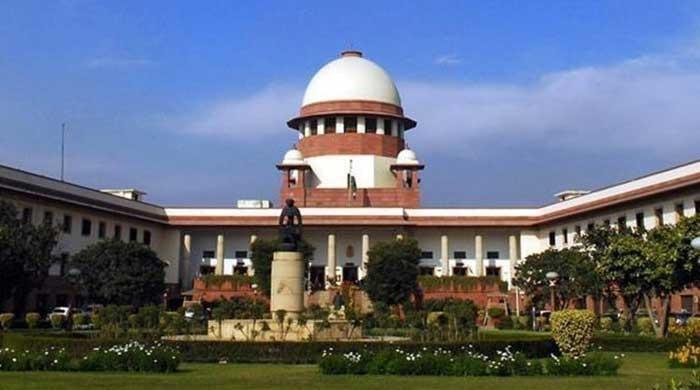- SC confirms the law for the inclusion of non-Muslims in Waqf advice.
- The high limit courtyard non -Muslim members to four to the Federal Council.
- Suspends the provision allowing the government to decide on the fate of properties.
The Supreme Court of India has suspended certain provisions of the controversial 2025 law of the WAQF (amendment) which govern the way in which the properties given by Muslims were held and managed in the country.
After having heard several pleadings deposited by Muslim groups and opposition parties arguing that the law focused on the rights of Muslims, the chief judge of India and judge Ag Masih suspended a provision which allowed the government to decide if disputed goods were waqf or not, the Bbc reported.
The court, however, refused to reverse the entire law as desired by the appellants and declared that the suspension was only granted in the “rarest category”.
The earth and the properties that fall under the “Waqf” Category, which means “staying” in Arabic and is endowed by a Muslim for religious, educational or charitable purposes. These lands cannot be transferred or sold.
Government and Muslim organizations estimate that more than 25 waqf The advice contains nearly 85,1535 properties and 900,000 acres of land, which puts them among the three main landowners in India.
These properties in India were governed by the 1995 WAQF law, which provided Waqf advice at the state level.
However, in April, the Bharatiya Janata (BJP) party tabled the WAQF bill (amendment) which offers the inclusion of non -Muslim members to the Waqf central council and WAQF advice and will allow the government to determine the property of the disputed WAQF properties.
Although many properties, given via oral declarations or by following community traditions, have been legitimized due to their continuous use by Muslims, the new law submitted by the government of Prime Minister Narendra Modi requires that the WAQF councils provide valid identification information to claim property such as WAQF and, in the event of a dispute, the government is to decide on the law of the property concerned.
This provision has now been canceled by the Indian SC on the issue of separation of powers – between the executive and the judiciary – if the government should decide on the rights of citizens instead of the latter.
In addition, the country’s supreme court also suspended another clause which required that a Waqf donor be Muslim in practice for at least five years.
Nevertheless, the judges refused to provide a suspension against a provision authorizing the appointment of non-Muslims to the board of directors of the WAQF, and rather limited the number of non-Muslim members to a maximum of four within the Federal Council of the WAQF of 22 members and to three in the 11 members of State.
“Efforts should be made to appoint the head of the Directorate of the Board of Directors among the Muslim community,” he said.
– with an additional reuters input




